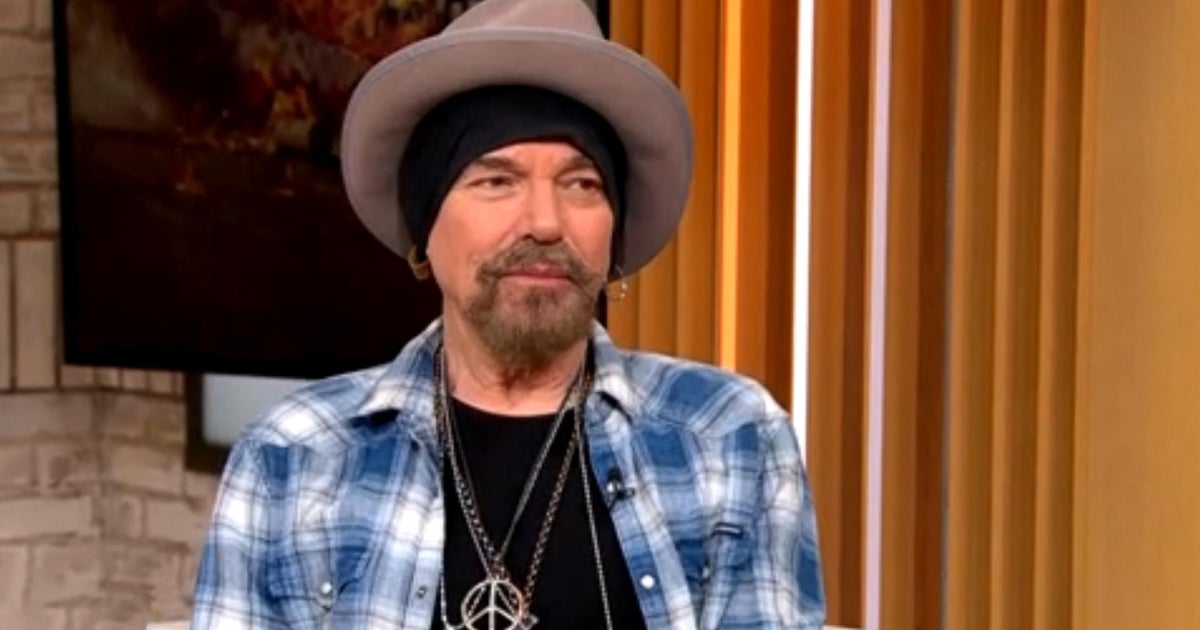Air Force veteran once imprisoned for being gay still endures the stigma of a felony record
The U.S. military has made no affirmative effort to identify and revisit cases where service members were convicted of crimes and saddled with felony records for being involved in same-sex relationships, a CBS News Investigation has found.
"There are thousands that have been incarcerated for their sexuality" over the years, said Rachel VanLandingham, a law professor who spent 24 years in the Air Force and is now the president of a nonprofit dedicated to improving fairness in the military justice system. "If they cared enough, they could go through the records."
Identifying the thousands of cases has posed an immense challenge, VanLandingham said, because of the wide variation in charges employed to force gay and lesbian service members out of the military. Before the 2011 repeal of "don't ask, don't tell" — the policy that barred them from serving openly — there was no single charge used by U.S. military courts to expel gay men and women from the service.
Article 125 of the Uniform Code of Military Justice directly criminalized homosexual activity by outlawing "unnatural carnal copulation," while other statutes like "conduct unbecoming an officer," "indecent acts" and "making a false official statement" were used as cover charges to drum gay men and women out of the service on the basis of their sexual orientation.
While the true scope is unknown, it's estimated 100,000 LGBTQ service members were kicked out of the military between World War II and the repeal of "don't ask, don't tell." Many received less than honorable discharges that deprived them of the full spectrum of benefits afforded to those honorably discharged, including access to VA loan programs, college tuition assistance, health care and some federal jobs. Others, however, faced far more severe consequences.
Steve Marose served as an Air Force officer in the late 1980s and had an excellent record until the military learned he was gay. Marose was charged with three counts of consensual sodomy under Article 125 and two counts of conduct unbecoming an officer. The combined charges carried a maximum sentence of 17 years in prison.
"It was five years per sodomy charge and a year per conduct unbecoming charge," Marose explained. "For being me."
It wasn't uncommon then to be court-martialed and thrown out of the military, so Marose followed his lawyer's advice and pleaded guilty. But the military didn't discharge Marose — it put him in prison.
"When [the judge] came back in and sat down and said his decision was 24 months of confinement … my heart sank because again, I thought my military life was over. But in that moment, I thought my life was over," Marose told CBS News.
Marose's story is not unique. A Georgia man who was sentenced to a year at Fort Leavenworth in 1990 for having a homosexual relationship with another soldier was pardoned by President Obama in 2017 after years of appeals. His official charge was conduct unbecoming an officer.
Another case involved a marine corporal who spent eight months in the brig for having sex with another woman.
But VanLandingham told CBS News "the numbers are very difficult to actually ascertain."
An untold number of others were incarcerated under offenses that may appear to have nothing to do with homosexuality.
"There were so many alternative ways to involuntarily separate an individual from the military without putting on a paper that you were doing so because of their sexual orientation," VanLandingham said.
According to VanLandingham, the number of people incarcerated for their sexuality is something the military could know if officials had the desire to do so.
Decades after his release, Marose still has no benefits and is still a convicted felon, a status that excludes him from entire fields of employment.
While there are official channels veterans can use to request a discharge upgrade or correction to their record, Marose said he has never tried to do so because he had heard how difficult the process is.
In a statement to CBS News, a Defense Department spokesperson said it would be "inappropriate" to comment on a specific case, adding that "as a matter of law, the Department of Defense has no means by which it can administratively set aside a conviction once appellate review is complete."
The spokesperson also said, "Veterans are encouraged to reach out to the applicable Review Board to determine their eligibility for relief" and that the Department "takes pride in all our members."
For his part, Marose tends to focus on what prison gave him — not what it took away. It's a sentiment that's reflected in the speech he will deliver when performing with the Seattle Men's Chorus as part of their Disney Pride Concert in June.
"After my release, some old friends told me a light had gone out in me at that time," he said during a rehearsal this month for the performance. "But you know what? Another had been ignited because I had emerged as a militantly out gay man. Never again would I deny who I was for any company for any person — not for a single second."





